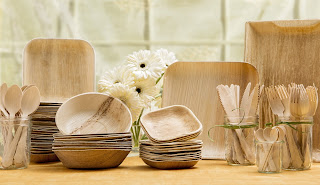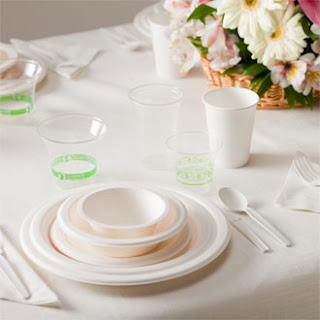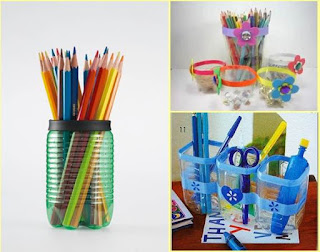Greener Options in Plates and Other Disposable Tableware
Every now
and then, we come across organising events like birthday parties, wedding
receptions or business promotion events. One thing that is common to most of
these occasions is the use of throwaway items like disposable plates, cups and
associated utensils. There is no better cost-effective alternative to using
disposable products when you are organising the event yourself. Being a
socially responsible citizen, all you can do is to choose the best eco-friendly
options available in catering disposables. Here we give you certain facts that
will help you sensibly choose disposable products for your upcoming event.
First let
us familiarise some common terms associated with disposable products.
Biodegradable:
Products that fall in this category decompose and break down easily into water,
carbon dioxide and biomass within a moderate time span, when discarded. Such
products cause only negligible negative impact on the environment. Whenever
possible, try to stick to cent per cent biodegradable disposables. Though slightly
costlier than regular disposables, it makes a good statement about your civic
sense and is likely to impress your guests.
Compostable:
These products are also biodegradable, with the difference being that they decompose
into beneficial nutrients for the soil. They may be processed in an industrial
facility for composting but are even safe to be discarded in your waste heaps
as they do not leave any toxic elements. Using compostable disposables is a
clever idea to make up for the negative effects of using disposable products. Needless
to say, they sure are not as economic as biodegradable products.
The usage
of biodegradable or compostable disposable products is always advantageous to
the environment. Furthermore, they are made with non-toxic and pollution-free
raw materials and the manufacturing process of such products consume less
energy, which is again a nature friendly factor.
Sustainable:
This term means that the product is manufactured through processes that do not exhaust
or seriously wreck natural resources. For example, disposable products made of bagasse
(sugarcane waste from sugar mills) are sustainably manufactured, because
sugarcane is a rapidly renewable resource which is re-cultivated on the same
land and the raw material, as such, is a by-product of sugar production. Since
it is not possible to manufacture everything we need from sustainable
resources, opt for them whenever feasible.
Though
disposable products of the sorts mentioned so far are a little bit more
expensive, it does not mean they are strictly meant for one-time use. You can
reuse them up to 10 times if cleaned and handled carefully. It is a compromise
just short of using reusable products. But since it is not practicable on all
occasions, especially when the event is a large-scale one and manpower is
limited, the best you can do is to use only compostable or biodegradable disposables
and the little extra you spend should be treated as a small price we pay Mother
Nature.




Bamboo Melamine Tableware
ReplyDelete